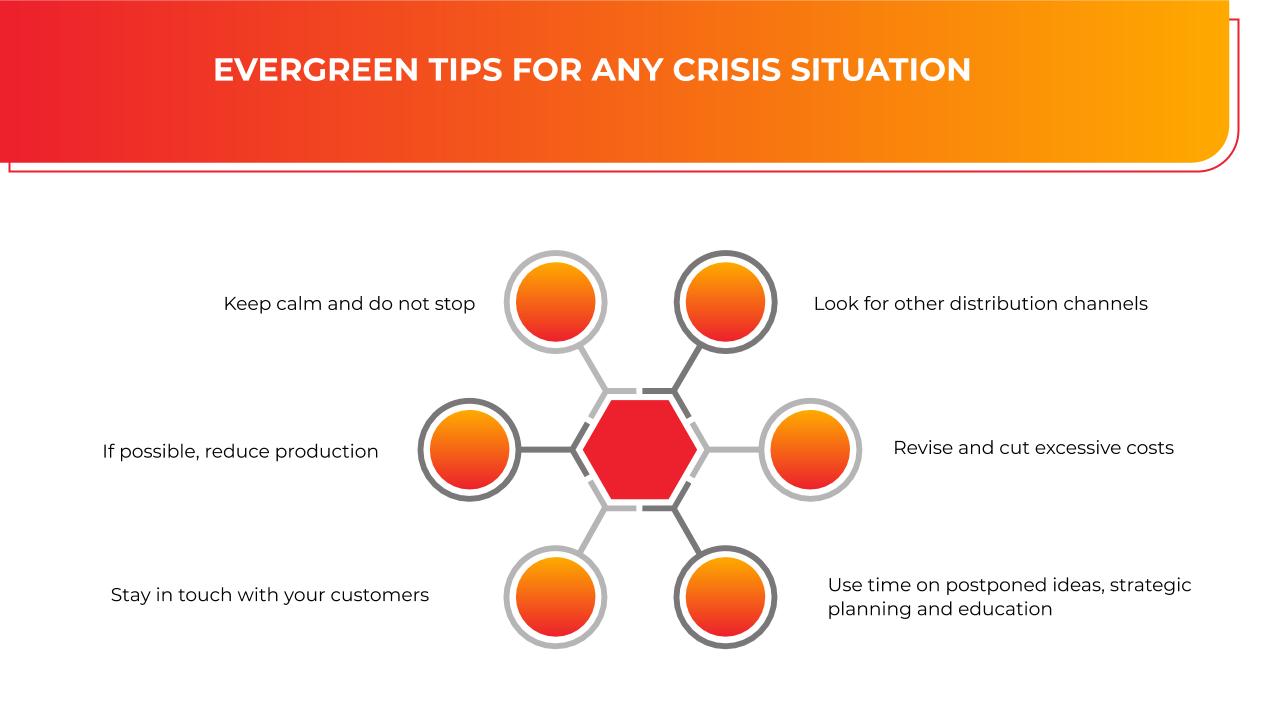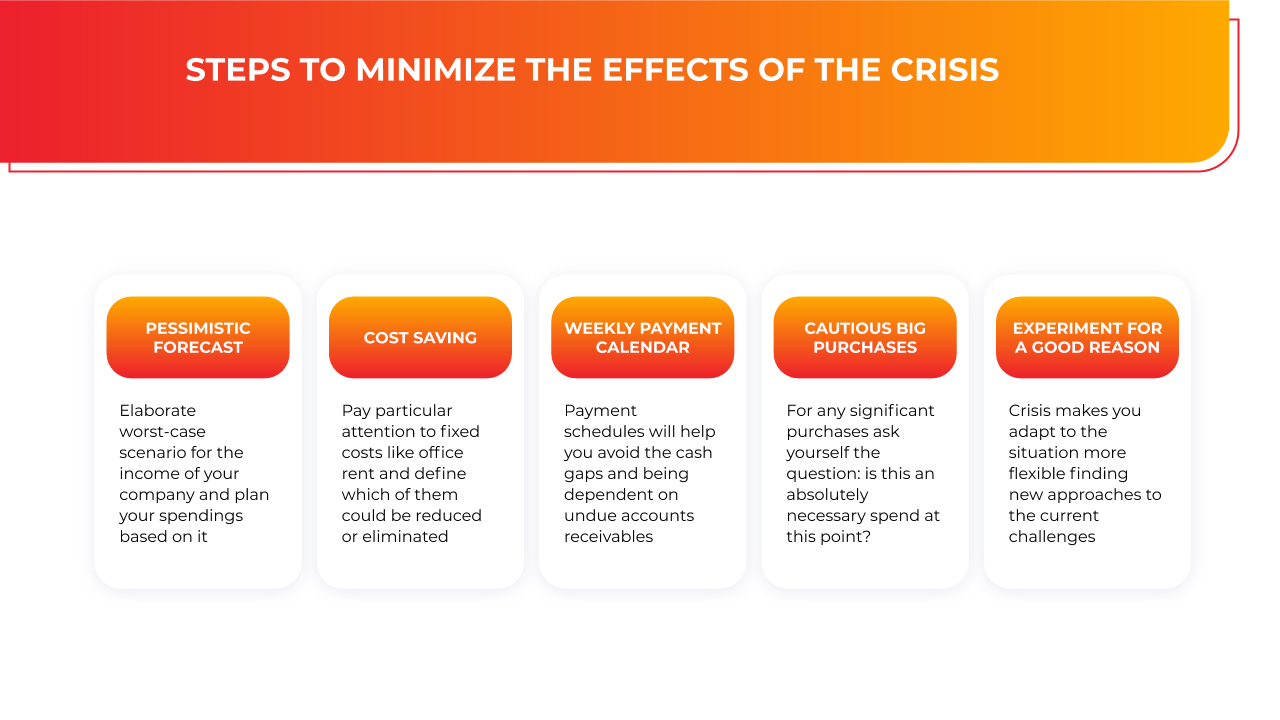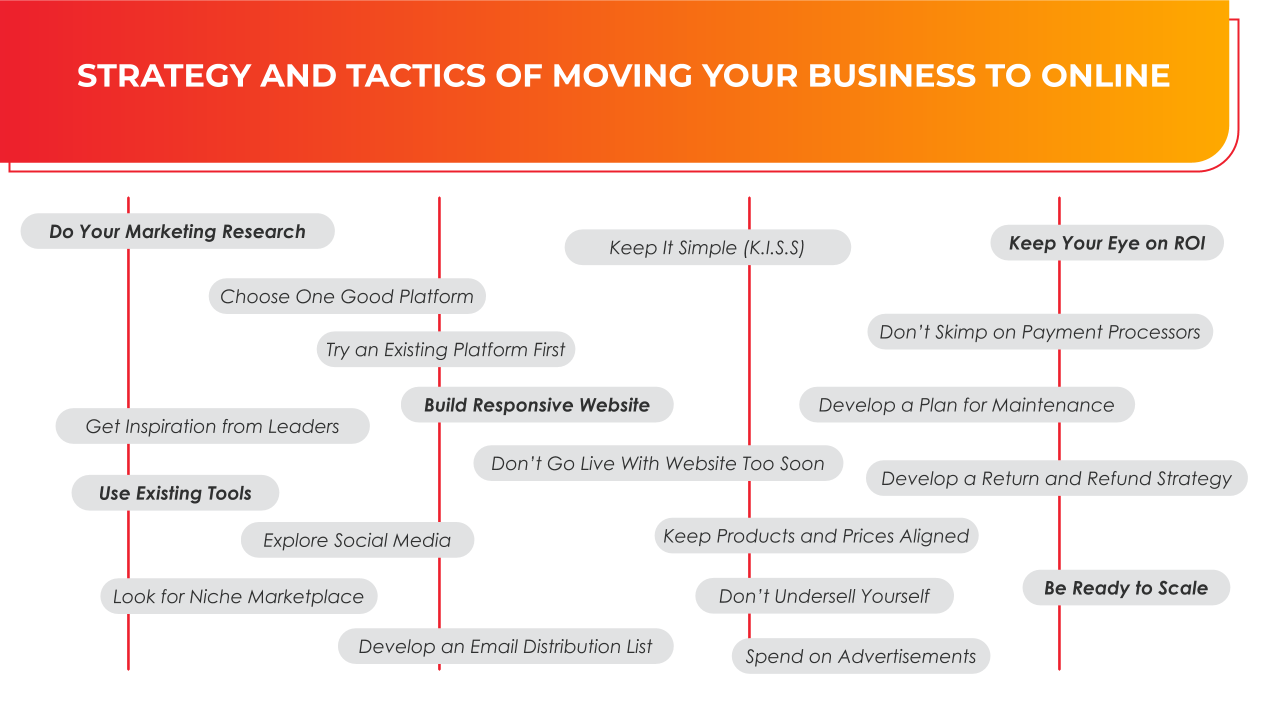
Crisis Management Tactics: How to Find Business Opportunities in Recession?
When a business needs to respond quickly and create a crisis management plan on the spot, time is of the essence. This article will help your business develop the right crisis management tactics, save resources, and survive the global lockdown.
Table of Contents
Recession vs Depression: What Are We Facing?
In order to develop a crisis response strategy, it is necessary to understand the current business climate. Is the economy in a temporary recession or is there a depression coming?
We are currently in a recession, which is defined as negative changes in the economy for two consecutive quarters. This is only the first stage though, according to The Guardian. The real economic depression is yet to come, and it promises to surpass the Great Depression of the 1920s in terms of scope and severity. What’s more, there is research that suggests that the Gross Domestic Product (GDP) loss as a result of the global pandemic could be $347 billion worldwide in a worst-case scenario ).
Ending the quarantine gradually is only the beginning. Full business recovery will take quite some time, so it’s important to think through several anti-crisis and recovery strategies now.
Which Businesses Are Managing the Crisis Well?
There are always businesses that bottom out and those that flourish during a crisis. Because of this, some view the crisis as an opportunity for certain types of businesses such as:
- Cloud providers (because most companies are operating online with employees working from home)
- Applications for communications and conferences (for the above reason)
- Sellers of fitness products (for home workouts during lockdown)
- Pharmaceutical companies
- Manufacturers of some products like hand sanitizer and disinfectant products
- Distributors of alcoholic beverages
The businesses that have suffered the most from the crisis are retail, food and beverage, entertainment, and tourism industries.
But even those businesses can benefit from a crisis management plan.

What Can a Business Do to Manage Economic Crisis?
Below are some tips on how businesses are managing the current economic crash:
- Sell online. Many businesses, especially brick-and-mortar retail establishments, have shifted to online sales. At the moment, this is the only way for retailers to stay afloat.
- Switch to the remote business model. The pandemic crisis and lockdown have also proven that virtually any work can be organized remotely and it can save money as well. Telemedicine is a good example of an industry that was not expected to adapt to a remote model, but there is strong evidence that it is working successfully.
- Decrease costs. The two steps above are a direct result of the need for cost reduction. Perhaps that was not the intention, but for small business owners, the elimination of renting and maintaining a workspace represents huge savings.
- Adapt products and search for new target audiences. Four percent of all businesses have been able to turn the 2020 recession into an earning opportunity. For example, at the beginning of quarantine, many information companies offered big discounts on their educational courses which in turn increased their target audience.
- Come up with a delivery service. Delivery is one of the current crisis management techniques. For example, many bars are delivering drinks or preparing them for pick up, and restaurants are offering delivery of grocery items like toilet paper in addition to the foods they prepare.
What are some of the Crisis Management Strategies and Tactics?
Below we outline some virus-specific crisis management strategies that work well even in stable conditions.
- Revise and manage your cash flow. In times of crisis, planning your finances properly is very important. This means that you need to clearly understand how much money you have, how much you need for expenses, and how much you will have at the end of the reporting period.
- Increase cash inflow. This is the most difficult task of the strategy as it often has to be done quickly. You need to sell your product online, adapt the product and look for new customers, or discount your goods or services, and make minimal profit margins just to stay afloat.
- Manage contracts and obligatory payments. For example, it is possible to negotiate with lenders and landlords to reduce interest rates and rents.
- Lower your cash outflow. In other words, do not buy anything that is not a necessity, and maximize all possible resources.
- Perform critical staff analysis. This does not mean that you need to fire your entire team. For example, you can develop a more flexible schedule, have rotating staff, or switch to remote work.
- Come up with strategic ideas for the long run. The recession will not end with the wave of a magic wand. You definitely need a long-term strategy as part of your crisis management plan. Collaborate with other types of businesses to support each other at the recovery stage (for example, gas stations are working with contactless payment systems).
How to Move Your Business Online: A Crisis Management Strategy Example
Here is an example of how a retail business can overcome a crisis by moving online.
- Don’t panic. We are in this together.
- Do more research. It makes sense to determine the mood of your audience, how solvent your customer base is, and what is expected from you.
- Look for a niche marketplace. This is one of the first anti-crisis rules. It is much easier to register on a marketplace and start selling quickly than to create a website from scratch. More on that later.
- Strengthen your social media presence. Social networks are a free tool that you can use more actively during a crisis.
- Evaluate the results from the tools you already have. You need to clearly understand whether you are going in the right direction, whether you need to pivot or if you should consider closing your business temporarily or permanently.
- Empower your business with a responsive website. This is a time when investing in a site is a very sensible idea. It may be the only way to stay afloat, and it will bring you revenue after the current situation stabilizes as well.
- Come up with marketing ideas that you can implement on your own. For example, you can create a design for a Facebook post in Canva for free, or even shoot a video for IGTV using your smartphone.
- Be twice as attentive as evaluating your return on investment (ROI). Don’t forget about the anti-crisis strategies previously discussed in this article: manage your finances competently and monitor the effectiveness of your marketing channels.

One Last Step: Ask a Reliable Vendor For Help
It is always easier to come up with a strategy when you consult an expert. At Archer Software, we are able to support your business with our professional market analysis and software development. Feel free to get in touch with us to find a way to stabilize or even grow during this crisis.
June 1, 2020
















